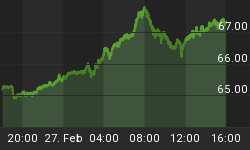The election of Donald Trump is likely to do at least one good thing for the country (and that's at least one more good thing than we would have seen had Hillary won).
Trump gets to make the next Supreme Court appointments and he has a great chance to clobber the public unions.
Already the SEIU is putting out warnings. An internal memo outlines plans to slash budgets by 30 percent at SEIU, the group behind the Fight for $15.

Please consider Fear of Trump Triggers Deep Spending Cuts by Nation's Second-Largest Union.
"Because the far right will control all three branches of the federal government, we will face serious threats to the ability of working people to join together in unions," SEIU President Mary Kay Henry wrote in an internal memo dated Dec. 14. "These threats require us to make tough decisions that allow us to resist these attacks and to fight forward despite dramatically reduced resources." After citing the need to "dramatically re-think" how to implement the union's strategy, Henry's all-staff letter announces that SEIU "must plan for a 30% reduction" in the international union's budget by Jan. 1, 2018, including a 10 percent cut effective at the start of 2017.
SEIU, which represents nearly 2 million government, health-care, and building-services workers and wields an annual budget of $300 million, is the nation's second-largest union and arguably the most politically significant. In the past few years, SEIU has mounted organized labor's most effective political intervention with the "Fight for $15," a campaign that's dragged Democrats—from city council members to presidential candidates—further left on the minimum wage. At the same time, it cultivated close ties with President Obama, played a key role in passing Obamacare, and worked hard to elect Hillary Clinton.
SEIU, like most of its peers, was already in a state of slow-motion crisis before Trump's victory. Things will only get worse after inauguration, when organized labor will find itself without a friend in the White House. Unions will instead be up against unified Republican control of the federal government and of half the nation's state governments, where labor organizers have already suffered some severe blows.
In Michigan, for example, Republicans in 2012 passed a private sector "Right to Work" law that let workers decline to fund the unions representing them, a public sector law doing the same for government employees, and a third law stripping University of Michigan graduate student researchers and home-health aides of their collective-bargaining rights. Afterwards, SEIU's Michigan health-care local lost most of its membership.
With Republican dominance in Washington, the threats to SEIU will get more grave: Everything from slashing health-care spending to passing a federal law extending "Right to Work" to all private-sector employees could be on the table. One of the most widely expected scenarios is that a Trump appointee will provide the decisive fifth vote on the Supreme Court's labor cases. The court already ruled in 2014 that making government-funded home health aides pay union fees violated the First Amendment, and a future case could apply the same logic to all government employees, effectively making the whole public sector "Right to Work." SEIU was bracing for such a ruling earlier this year, in a case called Friedrichs v. California Teachers Association, but got an unexpected reprieve when Justice Antonin Scalia's death left the court tied, four to four. With several similar cases brought by union opponents already making their way through lower courts, it may not last for long.
Even before Trump's win, the prospect of a Friedrichs loss and the array of attacks facing unions had some skeptics wondering how long SEIU could afford to keep funding the $15 wage push without any matching influx of fast-food union dues.
Right-to-Work and Bankruptcy Needs
This country seriously needs two things at the nation level.
- Right to work legislation
- Bankruptcy law that supersedes all state laws
Currently, bankruptcy law at the municipal level is a Hodge-podge. Once municipalities file for bankruptcy, they are under a federal process, not a state process.
However, it is up to the states to decide whether or not they allow municipal bankruptcies.
Many states, including Illinois, do not allow municipal bankruptcy. There are a number of cities in Illinois that would likely file right now if they could.
Trump has a chance to put this country back on track in a much needed move to curtail union power as well as corrupt officials in states like Illinois.















